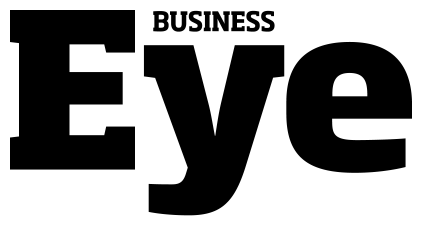My grandfather started Bedeck as a linen handkerchief manufacturer in the 50s. When I entered the business with my brother 29 years ago, we knew we would need to take one or two risks so that the business would be able to evolve and move with the times.
Since taking over, we’ve developed into a 14-brand strong multi-channel retailer. Despite our evolution, we’ve worked hard to maintain a small, family-run feel to our business. It’s an incredibly important part of our company culture.
Preserving the family ethos of our business has allowed us to remain agile in our approach as well as in the overall decision-making process. We are not held back by challenging management structures or complex chains of command. By remaining nimble and allowing familial-like qualities to flourish, we have been able to initiate change quickly. This has helped us keep our feet on the ground so we’re able to engage with everyone who works at Bedeck; whether they’ve been with us for 60 years or 6 weeks.
Having led Bedeck for nearly three decades, you have to accept that you continually need new thinking and new skill to add to the business. Bringing new talent into the business has certainly helped us to inject fresh thinking and ideas. But when you’re looking to make some difficult decisions, it is equally important to seek advice from sources independent to you and your business – basically anyone devoid of bias, who can help you think through challenges and formulate the right approach. As the saying goes, ‘no man is an island.’
Working side by side with your family every day, it’s easy to find yourself looking inwardly rather than at the bigger picture. This can lead to blind spots that only someone completely impartial might identify. The ability to access impartial advice is absolutely vital when you’re running a small family business. For all the benefits that come from working with your family, it’s easy to let emotion creep into the decision-making process. By listening to the advice of a third-party, the likelihood of unconscious bias forming part of the decision-making process decreases, allowing issues to be effectively resolved.
For a small business like mine it can be difficult to know where to turn for credible counsel that is completely independent. I came across peer group mentoring organisation Vistage a little over two years ago. Vistage brings together small groups of business leaders facing similar challenges and problems and encourages them to work through operational and personal business challenges in monthly sessions. Sessions are organised and run by a Chair, typically a former CEO, who has faced similar challenges in their career to the ones we are facing now.
All business leaders have their own challenges and it’s tempting to see these as being entirely unique to your own position. But when you start talking to others, you quickly see common ground. Being part of a community of like-minded businesses who can lean on each other for support and advice has been an absolute revelation, allowing me to air issues openly and confidentially; and listen to advice from people who have been there before.
By sharing stories and being willing to listening to the challenges of others, you are able to share learnings and apply them to your organisation as necessary. Keeping in regular touch with an outside resource is also crucial to allow for the sharing and development of new ideas. It is a motherly ‘tough love’ approach, forcing leaders into a slightly more uncomfortable position in making them accountable to others in a way they might not always be at work. At times, all that is really needed is time away from your computer to focus on leading a team more effectively. Ultimately mentorship sessions allow for the time and space to reflect.
It’s true that many of the issues we discuss as groups start as operational. But often the root of these issues can lie in something personal. As business leaders we all have personal lives, which more often than not can have an effect on the way we lead. When there is little distinction between family and work life it can be increasingly difficult to operate objectively. Factors such as health and well-being quickly get overlooked when you’re searching for answers. Having attended monthly group mentorship sessions with my group for some time now, I see can speak to the value of placing personal well-being side-by-side professional well-being.
Running any business can be an isolating task and running a small family business can be equally as solitary from the ‘outside world’. I now know that this need not be the case. I’ve heard people describe Vistage in a number of different ways. Some call it ‘the board you can’t afford’ while others describe it as ‘therapy for CEOs.’ I think both of these descriptions have some merit to them. Being part of a community working together to help one another has helped me overcome the personal as well as operational challenges that go hand in hand with running a family business. Ultimately it has helped me become a better, more reflective leader.




